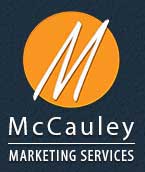Does Word of Mouth Add Value to a Business’ Success?
 Who remembers the days of phone books? Before the time of Google, Yelp, or even Ask Jeeves (bet you forgot about him didn’t you?), we found ourselves thumbing through alphabetical listings to find information for a variety of businesses and services in the local phone book. There weren’t really peer review sites to the magnitude we see now so many of us were left to our own devises to figure out who was reputable, cost effective, helpful, close by, etc. Sure, advertisements on the TV, radio, or in the newspaper put companies visibly in front of potential customers, but word of mouth proved just as strong of a tool for many. Fast forwarding to today, we pose the question: does word of mouth have any added value to a business’ success?
Who remembers the days of phone books? Before the time of Google, Yelp, or even Ask Jeeves (bet you forgot about him didn’t you?), we found ourselves thumbing through alphabetical listings to find information for a variety of businesses and services in the local phone book. There weren’t really peer review sites to the magnitude we see now so many of us were left to our own devises to figure out who was reputable, cost effective, helpful, close by, etc. Sure, advertisements on the TV, radio, or in the newspaper put companies visibly in front of potential customers, but word of mouth proved just as strong of a tool for many. Fast forwarding to today, we pose the question: does word of mouth have any added value to a business’ success?
A quick poll of the McCauley Marketing Services team says yes – word of mouth still plays an important part, we just think it’s evolved into many different layers that were perhaps unimaginable during the times of phonebooks and coupon mailers:
- Word of Mouth (Then) – looking for a plastic surgeon or a pediatrician for your newborn? Google wasn’t started until 1998 and Yelp didn’t hit the scene until 2004, so information regarding a specific practice or healthcare provider was much less accessible when it came to finding proper reviews on the individuals or services offered. This is perhaps a time when a recommendation from a friend’s cousin’s sister’s mother would carry more weight than a flashy advertisement. Especially in the healthcare industry, you wouldn’t want just any surgeon to be in charge of your, or your family’s, medical wellbeing blindly. Asking around town and taking the advice of trusted confidants still to this day remains a contributing motivator for some consumers. As the provider, these referrals help propel business to an audience that wasn’t always easy to target and subsequently reach in an effort to improve their practice’s business. Positive patients increased the likelihood of them sharing their satisfaction with those around them, people they know, and even strangers, if the topic of conversation ever came up.
- Word of Mouth (Now) – the biggest shift in news travelling by word of mouth is the manner in which we share messages with each other. Before, it was heavily reliant on face-to-face interactions, telephone calls, and written letters (you know, the kind that you hand write, address, stamp, and drop in the mailbox) – but today, we are all connected to each other and can reach a wider audience of strangers instantly. Thanks to the internet and social media platforms like Facebook and Twitter, you can see what people are saying about a particular brand or company from just about anyone on the globe. Review sites like Yelp, Google, Angie’s List, etc. gave consumers a one-stop-shop of ratings and personal reviews of what they experienced at one business or another. Believe it or not, many people may take these review sites like Healthgrades, RealSelf, and Vitals VERY seriously and have disregarded choosing a healthcare practice solely based on what others had to say about it. We see this as a double-edged sword. On one hand positive feedback gives you a higher rating, increases your visibility in fields that are possibly already saturated in your area, and can encourage new customers or patients to try you out. The flip side to this is the challenge fake and negative reviews can present. There are companies that pay employees to leave negative reviews even if they’ve never spoken with you or your staff or stepped foot in your practice. If your company already has great service and a ton of happy customers who left raving reviews, the Negative Nancys of the world may not have as much weight in the grand scheme of your brand’s reputation. It takes some due diligence on your part however to know who’s talking about your business and what’s being said in every day conversations.
The best thing you can do for your company’s benefit is to stay aware. Are the complaints of your actual customers valid? If so, how are you addressing these sentiments? Often times, once a service is rendered, if a patient isn’t happy, they’ll likely leave your office without so much as voicing any of these concerns. Next, they’ll go home, ruminate over whatever occurrences took place, and instead of addressing it directly with the company, they’ll decide to leave a scathing response (this can be done the same day or years later – there’s no expiration date on a dissatisfied customer’s wrath). This is exactly why we like to remind our clients of the importance of online reputation management and implementing a strategy for handling reviews, both negative and positive ones.
Instead of thinking of word of mouth potential in the traditional sense, think about the power it holds in a technologically-connected culture. We have larger audiences and can blast information at much faster rates than ever before. Don’t forget though, whatever is posted on the internet never fully goes away – no matter how much we like to think the delete button is a definitive solution! Instead, think of the BIGGER picture when creating your marketing strategy for what you share with the world and the kind of behavior you want your customers to see you exhibit in response to both positivity and negativity. It’s much harder to come back from an onslaught of negativity today than it has ever been in the past, so mitigate the headaches and work with your trusted staff and marketing team to keep a positive and forward momentum going. If you’re looking for a dedicated team of healthcare marketing and advertising professionals to get you started, don’t hesitate to contact McCauley Marketing Services at 770-447-1114 today. Your business’ reputation and success could depend on it!
